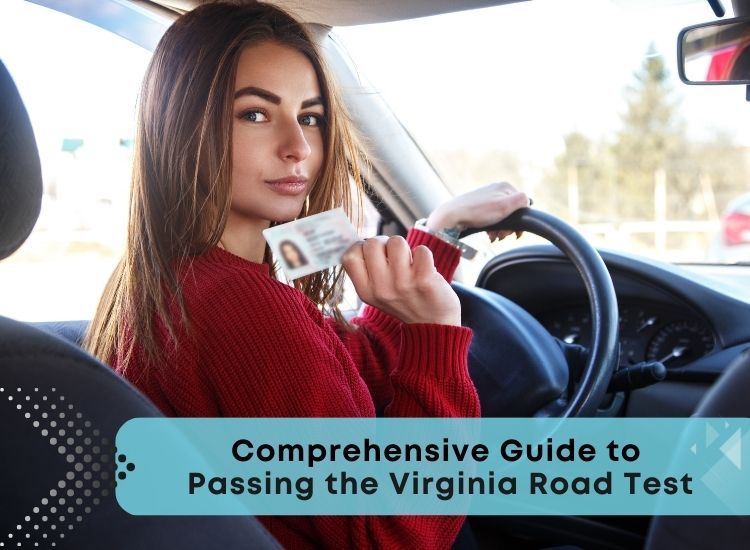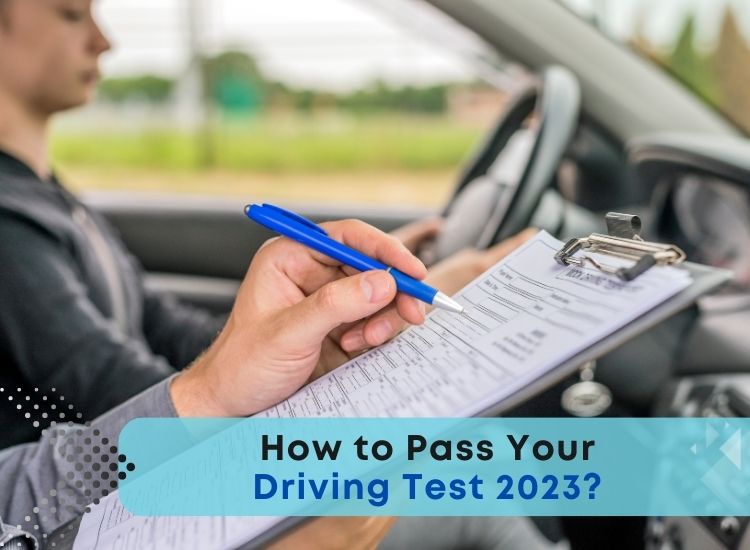Beat Driving Test Anxiety :Top 10 Ways to Soothe Your Nerves and Come Out a Winner!
 Beat Driving Test Anxiety :Top 10 Ways to Soothe Your Nerves and Come Out a Winner!
Beat Driving Test Anxiety :Top 10 Ways to Soothe Your Nerves and Come Out a Winner!
Ah, yes, the driving test – a rite of passage along the long road to adulthood. But unlike other tests, this one requires you to perform like a trained monkey in front of a complete stranger while they critique your performance. It’s enough to give anybody a bad case of nerves!
What if you could turn anxiety on its ear, pass your driving test and come out smiling on the other side? Wouldn’t that be a kick in the pants? It’s actually easier than you think.
Here’s the top 10 ways to jettison your driving test anxiety and ace the test like an old pro:
Acknowledge your anxiety: First up, it’s OK if you’re anxious about the driving test. Lots of people feel this way. Stop trying to not be anxious and just admit to yourself that you ARE. You need to remove your denial before you can find any solutions.
Study, study, study: It’s not like the driving test is a pop quiz. You KNOW it’s coming, so prepare for it. Your school, local DMV Virginia or Driver’s Ed has lots of preparation materials. Use them! You should study for at least 3 weeks before your exam. Don’t wait until the last minute and cram. It’s better to study a little (15 minutes) every day, 5 days a week. You’ll retain the information better and go in feeling better prepared.
Take a mock driver’s test: Taking the test BEFORE you take the test is great way to get over your fear of it. And you can take the practice test as many times as you want.
Give yourself positive feedback: Tell yourself things like, \”You can do this. You’re going to do great.\” It may feel corny, but affirming self-talk actually makes it more likely you’ll succeed. Remember to be nice to yourself.
Assume that you’ll be successful: How many millions of people have passed the driving test? Right. The odds are in your favour. You still need to prepare, but if Joe Schmoe can take the test and pass, so can you. Picture yourself passing. Do it several times before the test starts.
Give yourself plenty of time: Get there early on test day. Don’t rush around. Stay calm, focused, and go at a reasonable pace.
Loosen up your body: Stretch or exercise before the test if at all possible. Keep your body loose and easy.
Reward yourself beforehand: Reward yourself for passing the test – BEFORE you take it! Give yourself a little treat like your favorite food, a movie, new earrings, etc. Don’t worry… you can reward yourself again after the test too!
Schedule it for first thing: Try to schedule your driving test first thing in the morning. That way you won’t be dreading it all day. If you can’t take it in the morning, stay busy with other things before the test to get your mind off it. Don’t let yourself obsess.
It’s OK if you fail: Imagine, what’s the worst that could happen if you do fail? You’d have to take it again, but with one real test under your belt as practice. Try to look at failure as an opportunity instead of a disaster. An earthquake is a disaster. Failing your driving test is an annoyance.
Use the tips above and you will pass your driver’s test with a minimum of driving test anxiety. Giving yourself adequate preparation time is the most crucial. Everything else is really just to help you relax. So prepare, relax, and you’ll do great. You’ve got everything it takes. Just go in there and do it!
Good Luck!!!!
Frequently Asked Questions
Q1: How can I overcome driving test anxiety?
A1: To overcome driving test anxiety, acknowledge your anxiety, study thoroughly, take mock driver’s tests, give yourself positive feedback, assume success, allow plenty of time, loosen up your body, reward yourself beforehand, schedule the test for the morning, and remember that it’s okay to fail.
Q2: What should I study to prepare for the driving test?
A2: Study the necessary materials provided by your school, local DMV, or Driver’s Ed. Use practice tests, review road rules, traffic signs, and safe driving techniques. Familiarize yourself with driving laws, regulations, and any specific requirements for your jurisdiction.
Q3: How can a mock driver’s test help with driving test anxiety?
A3: Taking a mock driver’s test allows you to experience the format and conditions of the actual test. It helps you become familiar with the questions and tasks involved, reducing anxiety and building confidence through practice and repetition.
Q4: Why is positive self-talk important before the driving test?
A4: Positive self-talk helps boost your confidence and mental state. By affirming your abilities and reinforcing positive thoughts, you create a more positive mindset, which can enhance your performance during the driving test.
Q5: How can I stay calm and focused during the driving test?
A5: Give yourself plenty of time on test day to avoid rushing. Engage in stretching or light exercise before the test to loosen up your body. Maintain a calm and focused mindset, focusing on the task at hand rather than worrying about the outcome.
Q6: What are the benefits of scheduling the driving test for the morning?
A6: Scheduling the driving test for the morning helps prevent excessive worrying throughout the day. It allows you to tackle the test when you’re fresh and more mentally alert, increasing your chances of performing well.
Q7: How can I view failure on the driving test as an opportunity?
A7: Instead of seeing failure as a disaster, view it as a chance to learn from your mistakes and improve. Treat it as valuable experience and motivation to do better next time. Remember, passing the driving test is a process, and setbacks are a normal part of learning.
Q8: Can I reward myself before the driving test?
A8: Yes, rewarding yourself before the driving test can help boost your motivation and confidence. Treat yourself to something you enjoy, such as your favorite food, a movie, or a small gift. It serves as positive reinforcement and can help alleviate anxiety.
Q9: How long should I study for the driving test?
A9: It is recommended to study for at least three weeks before the driving test. Avoid cramming at the last minute and instead dedicate around 15 minutes each day, five days a week, to study the material. Consistent and spaced-out studying improves retention and preparation.
Resource 1: DMV Virginia – http://www.dmvNOW.com







